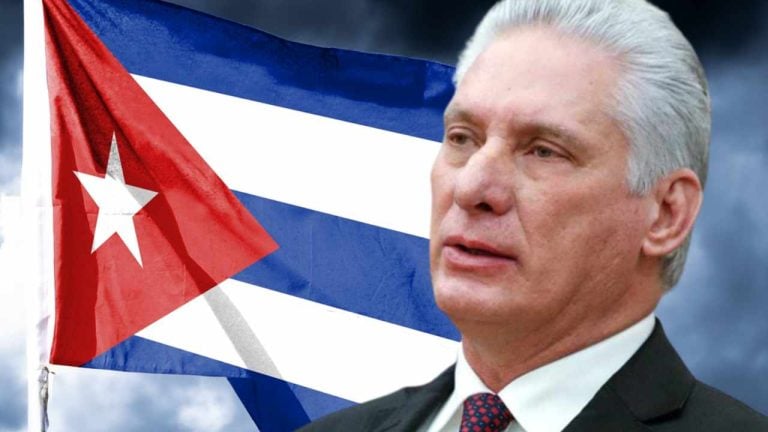Cuban President: Ditching US Dollar Frees Countries From Sanctions and Aggression
Publikováno: 3.6.2023
 Cuba’s president, Miguel Diaz-Canel, says the U.S. dollar’s global reserve currency status enables the United States to pursue an “aggressive hegemonistic policy of building walls, imposing punitive sanctions, blackmail, aggression, and slander.” He added that the BRICS economic bloc “provides a brilliant alternative for economic integration, especially for developing economies.” Cuba’s President on De-Dollarization Cuban […]
Cuba’s president, Miguel Diaz-Canel, says the U.S. dollar’s global reserve currency status enables the United States to pursue an “aggressive hegemonistic policy of building walls, imposing punitive sanctions, blackmail, aggression, and slander.” He added that the BRICS economic bloc “provides a brilliant alternative for economic integration, especially for developing economies.” Cuba’s President on De-Dollarization Cuban […]

Cuba’s president, Miguel Diaz-Canel, says the U.S. dollar’s global reserve currency status enables the United States to pursue an “aggressive hegemonistic policy of building walls, imposing punitive sanctions, blackmail, aggression, and slander.” He added that the BRICS economic bloc “provides a brilliant alternative for economic integration, especially for developing economies.”
Cuba’s President on De-Dollarization
Cuban President Miguel Diaz-Canel discussed the global de-dollarization trend in an interview with RT, aired on Thursday.
He explained that the U.S. dollar’s status as the world’s reserve currency enables the United States to pursue an “aggressive hegemonistic policy of building walls, imposing punitive sanctions, blackmail, aggression, and slander,” the news outlet conveyed. The Cuban president was further quoted as saying:
BRICS provides a brilliant alternative for economic integration, especially for developing economies.
The BRICS nations (Brazil, Russia, India, China, and South Africa) have intensified their endeavors to reduce dependency on the U.S. dollar, advocating for the adoption of their respective national currencies in trade settlements. Their leaders’ summit in August is expected to include discussions on a proposed common BRICS currency. Many people believe that a successful BRICS currency will erode the dominance of the U.S. dollar.
Despite not being a member of the BRICS group, Cuba has maintained a strong partnership with Russia dating back to the days of the Soviet Union. Trade between Moscow and Havana experienced significant growth last year, reaching $452 million, tripling its previous value.
For several decades, the United States has upheld wide-ranging economic sanctions against Cuba, originally imposed in the 1960s. The U.S. government has cited human rights violations, communist tendencies, and regional instability as some of the reasons behind the ongoing sanctions.
Diaz-Canel said, “I believe that we need to recognize the leading role of Russia in shaping this multipolar world,” adding that continued de-dollarization efforts will lead to “more inclusive and more mutually beneficial trade” for countries that reject the US’ “lies and empty promises.” Last month, Russia’s president, Vladimir Putin stated that the trend toward multipolarity is inevitable and will only intensify. “Those who do not understand this and do not follow this trend will lose,” the Russian president warned.
A growing number of countries besides the BRICS nations are ramping up their de-dollarization efforts. Ten Southeast Asian nations that are members of the Association of Southeast Asian Nations (ASEAN) recently agreed to promote the use of national currencies. Moreover, top officials of nine Asian countries met in Iran last week to discuss de-dollarization measures.
Do you agree with Cuban President Miguel Diaz-Canel? Let us know in the comments section below.